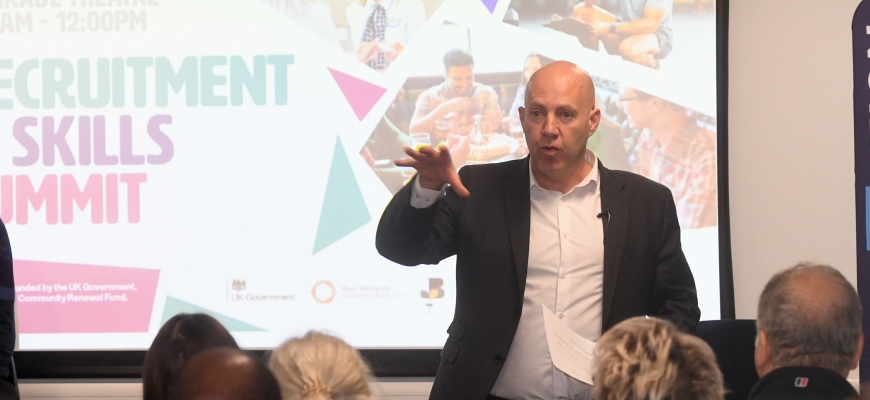
Business leaders in Coventry and Warwickshire say unemployment levels will remain unpredictable after it leapt to its highest level for six months.
The unemployment rate hit 4.2 per cent in the three months to January according to the latest figures from the Office for National Statistics.
Corin Crane, the chief executive of the Coventry and Warwickshire Chamber of Commerce, said that many firms are, however, still struggling to find the staff they need to be able to grow.
He said: “The level of unemployment has risen and there is still a huge swathe of people who are not including in those figures because, for a number of reasons, they are not actively seeking employment.
“Clearly, some businesses have cut back on staffing levels – hence the reason for the jump in unemployment and the reduction in job vacancies.
“But we are still speaking to companies every day of the week who want to employ more people so that they can grow but they simply can’t get hold of the skills they need.
“Therefore, we can expect the unemployment rate to be quite unpredictable in the months ahead and this is why it’s so important that we continue to tackle the skills issue head on.
“The Local Skills Improvement Plan (LSIP) is a really good start at doing that in this region and it is vital that we continue to build momentum so we can give people the skills they need not just for the jobs of today, but tomorrow too.”
Jane Gratton, Deputy Director Public Policy at the British Chambers of Commerce, said: “With the number of vacancies continuing to fall, and unemployment ticking up, there are further signs that the labour market is cooling.
“But we are certainly not out of the woods yet. Too many firms are still struggling to find the people and skills they need to fill job vacancies. At the same time, real wage growth continues to rise, ramping up the cost of employment. All this acts as a brake on activity, profitability and investment.
“Government and employers need to find ways to bring more people back into the workforce and to train them for our current and emerging skills needs. As well as investing more in skills, it means removing barriers to work and ensuring job seekers are well prepared to succeed in the workplace.
“Employers offering fairer and more flexible workplaces are often more successful at attracting and retaining talent in a competitive labour market.
“However, we are concerned by the growing number of people not looking for work, with a large chunk of those out of action due to long-term health issues. More must be done to help people with ill health stay in work and to help employers understand how best to support them.
“Until we get more people permanently back into the workplace then the upside risks of higher inflation and interest rates will remain.”
